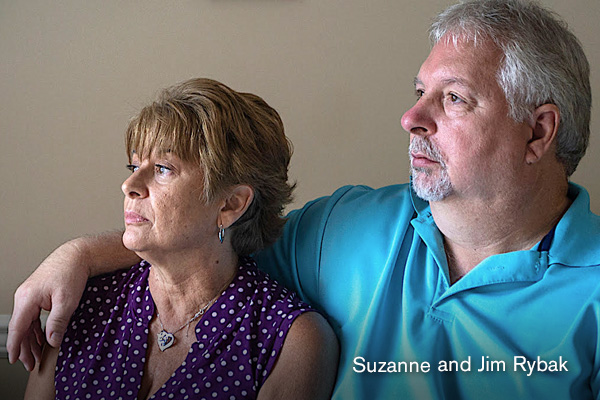LISTEN – THE FAMILY AFTERWARD –
July 15, 2021 – On March 11, 2020, though, Suzanne grew worried. Jameson, 30 at the time, was slipping in and out of consciousness and saying he couldn’t move his hands.
By 11 p.m., she decided to take him to the emergency room at McLeod Regional Medical Center in Florence, South Carolina. The staff there gave Jameson fluids through an IV to rehydrate, medication to decrease his nausea and potassium supplements to stop his muscle spasms, according to Suzanne and a letter the hospital’s administrator later sent her.
But when they recommended admitting him to monitor and manage the withdrawal symptoms, Jameson said no. He’d lost his job the previous month and, with it, his health insurance.
“He kept saying, ‘I can’t afford this,’” Suzanne recalled, and “not one person [at the hospital] indicated that my son would have had some financial options.”
Suzanne doesn’t remember any mention of the hospital’s financial assistance policy or payment plans, she said. Nor does she remember any discussions of providing Jameson medication to treat opioid use disorder or connecting him to addiction-specialty providers, she said.



